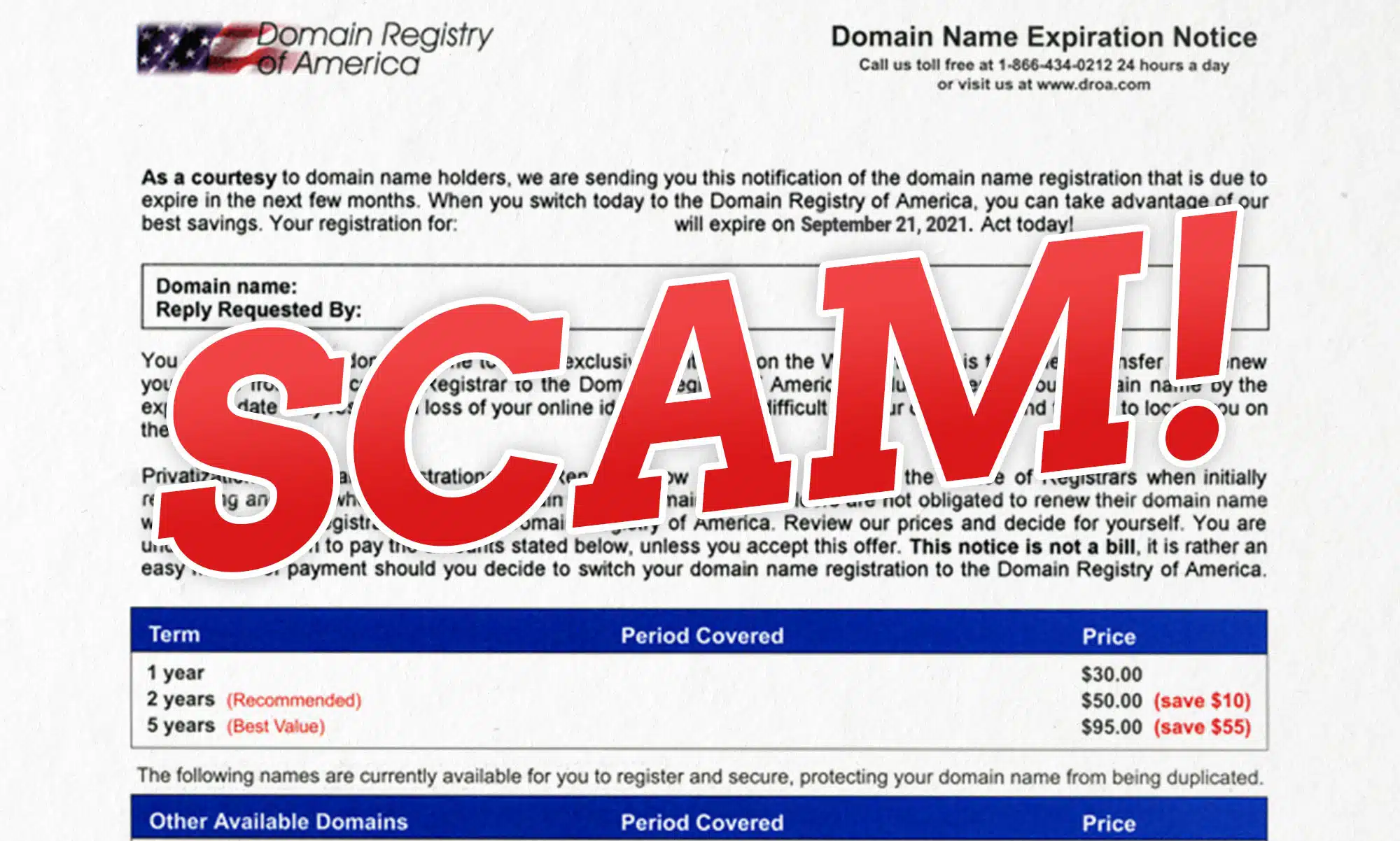What is Domain Name Escrow & How Does it Work?
Escrow is important when buying domain names, especially those of high value. Domain name expert Joe Uddeme explains how domain name escrow works – and why you should use a domain escrow 3rd-party when making highly-priced acquisitions.
What is Domain Name Escrow?
Domain name escrow is a specialized service designed to protect both buyers and sellers during domain name transactions.
In this process, a neutral third-party agent holds the payment and domain information until all conditions of the transaction are met.
This setup ensures that the buyer receives the domain name and the seller gets their payment, significantly reducing the risk of fraud and deception.
By using domain name escrow services, both parties can enjoy a secure and efficient transfer of domain ownership, providing peace of mind throughout the transaction. A domain name consulting service can help make the process much easier.
What Is Escrow?
Escrow is an arrangement in which a neutral third party temporarily holds money meant for a purchase until specific conditions are met. The money will only be transferred to the intended recipient when the conditions are met.
If the conditions are not fulfilled, the money will go back to the buyer. In domain name and other transactions, the escrow process often involves a lawyer managing legal documents, ensuring compliance with laws, and securely holding the assets and money in a trust account until the terms of the agreement are fulfilled.
What Can Escrow Be Used For & Why
Escrow is common in transactions where a significant amount of money is involved, e.g., real estate. It is necessary to protect the buyer from losing money in case the seller does not fulfill the terms of the deal.
Domain transactions can be pricey, which makes escrow and other services necessary just like with real estate. After all, domain names are online real estate. Escrow protects against:
Sellers refusing to deliver a domain despite agreeing to do so.
Buyers refusing to pay for a domain despite an agreement to buy it.
Payment being made – but the domain not being transferred to the buyer.
Secure payment is crucial in domain name transactions, and escrow services ensure that the financial exchange is safe and protected.
In short, escrow ensures that both parties in a deal stick to their agreed terms. It is a mediator of the transaction and refuses to complete it until both parties act in good faith.
How Does Escrow Work?
1. Agreement on price and deal
The buyer and the seller negotiate and agree on how much is to be paid for a domain name or group of domain names. They also negotiate important factors like the date of payment, method of payment, and what currency to use.
2. Buyer places agreement with an escrow company
With the deal terms drawn out, the buyer finds an escrow provider and deposits the payment with an escrow agent. Once the payment goes through, the buyer pays escrow company will notify the seller and tell them to transfer ownership of the domain name related to the escrow transaction.
3. Domain Name Is Transferred
The seller will transfer the domain name to the buyer. The wire transfer procedure varies depending on the domain registrar, but both parties will work together to ensure a smooth transfer.
It is crucial to involve legal counsel in domain transfers to secure the transaction and ensure compliance with legal requirements.
4. Domain Transfer Is Confirmed
After the domain is transferred, the buyer will notify the seller and agree with the escrow company that the seller has fulfilled their part of the deal.
5. Payment Given To Seller
With the domain transfer confirmed, the escrow company completes the escrow transaction by using a money order and sending the money deposited by the buyer to the seller.
What fees are associated with using an escrow service?
The escrow usually charges a commission on the value of the deal. Some may also charge a flat fee in addition to a commission. The exact commission may vary depending on the deal volume.
Benefits of Using Escrow For Buyers and Sellers
The benefits of using escrow for domain names include:
Security: The escrow holds the money until all deal terms are fulfilled, so there are little chances of the buyer losing their money without getting the intended domain name. The buyer also feels more secure dealing with a trusted escrow company than with a stranger over the web. Additionally, escrow services safeguard domain transactions by holding funds and domain holder information, minimizing the risk of fraud.
Assurance: The buyer is assured that they will get the domain they want, and the seller is assured of payment once the domain transfer is confirmed.
Customer support: Escrow services usually offer customer support and can guide the buyer throughout the process of acquiring a domain name.
Choosing the Right Escrow Services
Selecting the right 3rd-party escrow provider for domain name transactions is crucial for a smooth and secure process. Start by looking for a reputable and licensed escrow company with a proven track record in handling domain name transactions.
Evaluate their fees and payment terms to ensure they fit within your budget. Additionally, consider the quality of their customer service and support, as this can be invaluable if any issues arise during the transaction.
A reliable escrow provider should offer a secure and transparent process to deposit funds, with clear contractual obligations and a well-defined escrow agreement. Research the company’s reputation online and read reviews from previous clients to ensure you are working with a trustworthy escrow company.
Domain Name Transfer and Intellectual Property
Transferring ownership of a domain name involves several steps and can be particularly complex when intellectual property rights are involved. A domain name can be considered intellectual property if it is trademarked, which can impact its value and transferability.
Before proceeding with a domain name transfer, it is essential to conduct a clearance search to ensure the domain name does not infringe on any existing trademarks.
Utilizing a domain name escrow provider can facilitate this process by ensuring that both parties fulfill their contractual obligations and that the domain name is transferred securely.
This helps protect best interests of the buyer and the seller, ensuring a smooth and legally compliant transfer of the domain name.
Alternatives To Using Escrow
Attorney
A licensed attorney can draft a sales contract that is legally binding for buyer and seller. If any party breaks the contract, they can be sued for damages in court.
The attorney can also act as an escrow organization and only transfer money from the buyer to the seller if the terms of the contract are fulfilled.
An attorney is crucial in selling domain names to ensure all legal aspects are covered, and the transaction is secure.
Domain marketplace
There are many marketplaces where you can acquire domain names. Here, the marketplace acts as a custodian of the domain and only the seller transfers it to the buyer after payment is confirmed, which is then given to the seller.
Best Domain Name Escrow Services
Escrow.com
Escrow.com is the world’s largest online escrow service, and it has specific features for domain sales. The buyer can initiate the escrow request and provide the seller’s contact information for Escrow.com to get in touch.
The buyer transfers the agreed sum to Escrow.com, and it is only when they confirm the domain has been successfully transferred that Escrow.com will disburse the money to the seller.
Escrow.com charges 3.25% for deals between $0 and $5,000; 0.89% for deals between $5,001 and $25,000; and $162.5 + 0.25% for deals over $25,001.
Sedo Domain Transfer Service
Sedo is a popular domain name and website marketplace, especially useful for those looking to buy or sell domain names.
Its domain transfer service puts it as a middleman between the buyer and the seller. Sedo receives the payment from the buyer and the domain name from the seller.
When both ends are confirmed, Sedo transfers the domain to the buyer and the buyer sends the money to the seller.
This service incurs a 3% fee on the domain purchase price, with a minimum of $60.
Afternic
Afternic is another popular domain name marketplace focused on high-value domains. It offers an escrow service to protect both the buyer and the seller.
Afternic holds the agreed amount and only disburses it to the former owner or seller when the buyer has confirmed receipt of the domain. If either party breaks the deal terms, the sale will be canceled and the money given back to the buyer minus the escrow fee.
The drawback here is that Afternic doesn’t charge escrow fees separately. It takes a 20% fee, which includes both sales and escrow commissions on all domains listed on its platform.
Using an Escrow Service
It is necessary to use an escrow service if you are paying a significant amount for a domain name and it helps protect you and the seller. If you need guidance in the domain buying process, including escrow, contact us for help.
We have negotiated over $150 million in domain name sales and have over a decade of experience in domain name buying and transfers.
About the author
Joe Uddeme is Director and Principal of NameExperts.com, one of the world’s leading domain name brokerage services. He has overseen domain name sales and acquisitions totaling more than $150 million and is renowned worldwide as a go-to expert in buying and selling premium domains. Contact us at: [email protected]




